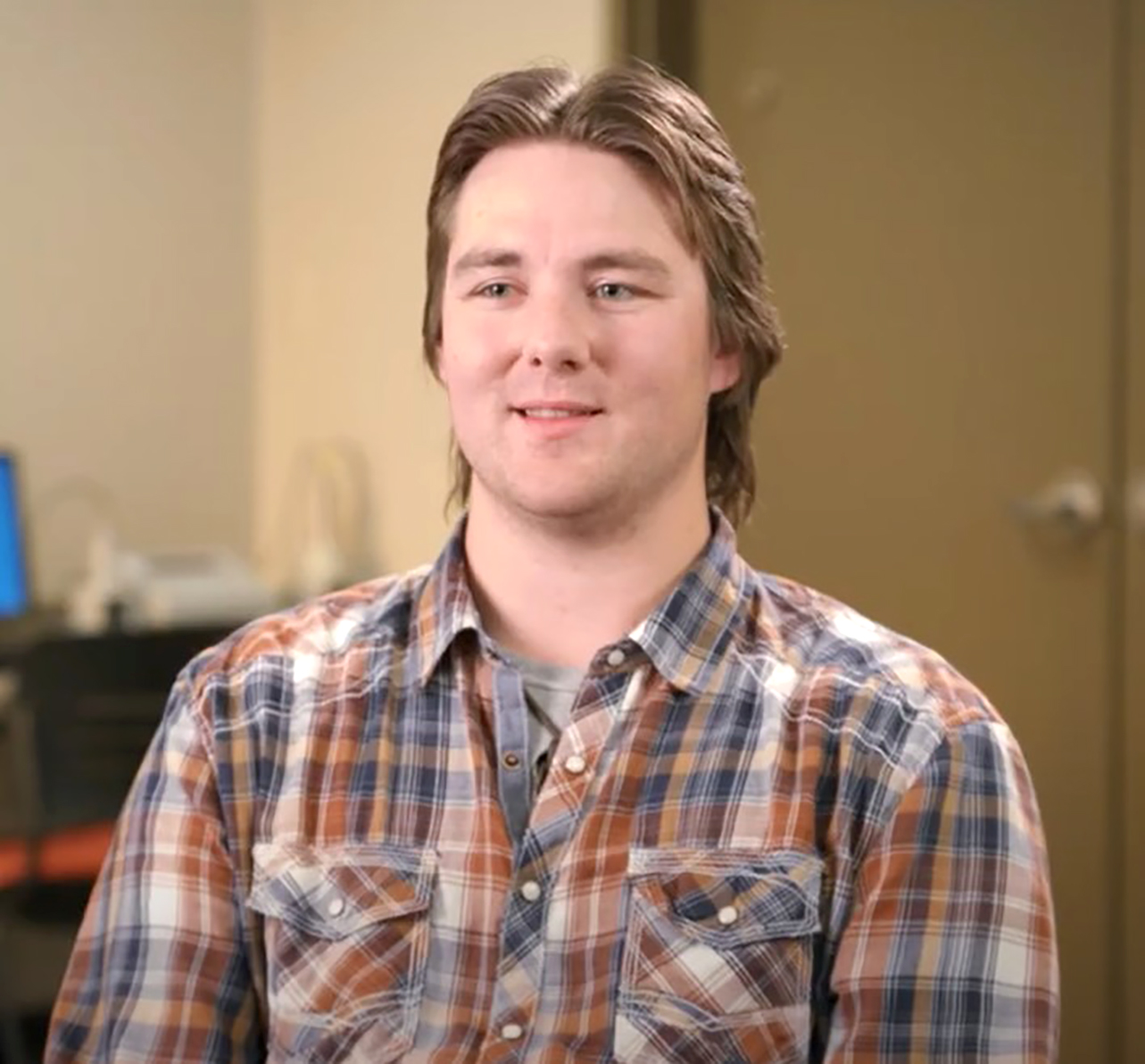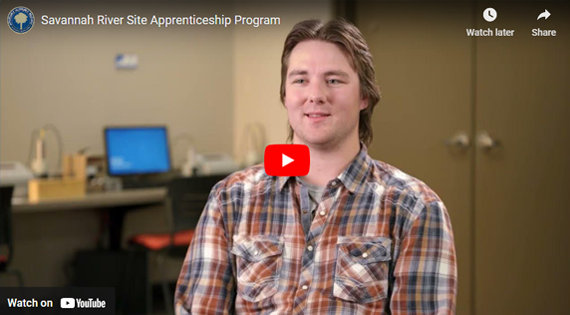
Brandon Christiansen
Aiken Technical College
"I've got so many people rooting for me that I want to perform better and bring real results so that I can show how I’ve progressed."
My name is Brandon Christiansen. My wife and I moved to South Carolina from Idaho with, like, $300 in our bank account so that I could join the Savannah River Site (SRS) Apprenticeship Program, and this place has been nothing but good to us. My grandpa worked in Radiological Control (RADCON) in the 1950s, and my dad works in RADCON currently. For me to be a third-generation RADCON tech is a really cool tradition to continue through my family line.
Tell us about how you ended up at the Savannah River Site in Aiken, SC.
My dad works at the Idaho National Lab, and I had the opportunity to go to a school where they crash-coursed me through a lot of the RADCON basics. I got my certificate and then started putting in for jobs that were in the same wheelhouse. I applied to places in Washington, New Mexico, Idaho. But this job here in South Carolina just felt more… right. Even though I was trained to be RADCON and now I'm in Operations, it still gives me a foothold into this company, and I'm very happy with where I've been placed. This breeds a lot of opportunity for me to move and grow in this industry.
Tell us about the training you received through Aiken Tech and the SRS Apprenticeship School.
The training at Aiken Tech prepped us very well to jump into the jobs we would be doing. The program is set up so that we report to the college two days a week and the training site two days a week. Because a lot of the work is radiological, we had multiple classes on safety and handling of radiological hazards.
We also had classes on hydraulics and pneumatics because a lot of what we do is open and close pipes. You have to be able to look at a schematic and ensure that you’re closing the right valve. So when you go out into the field and your procedure tells you to close a needle valve, you have to know what a needle valve looks like on a schematic. You have to familiarize yourself with everyday industrial fittings while in the classes so that when you’re at the site, everything is prepped and ready to go.
The classes set up a lot of the intricacies that you wouldn't normally think of. You can be walking around the job site, and someone may point out a kind of niche way to do something, and that would make you click back to a part of your training and think, Oh, that's why we do set operations in this way. It's to preserve safety and get things done in a timely manner. The classroom training is 100% relevant to the work you’ll be doing.
Properly handling nuclear materials is serious business. How do you know that SRS is invested in finding the right people – like you – to do this work?
My training for the apprenticeship program lasted seven months, but as soon as I got into the facility, I had another 12+ weeks of classes just to walk around the area and know how to do my job. All these people are putting so much time and effort in to get me certified, qualified, cleared through a background check. I've got so many people rooting for me that I want to perform better and bring real results so that I can show how I’ve progressed.
The amount of learning and world perspectives from people who've worked here for 40+ years… it just makes you want to go to work so that you can catch as much as you can before these people retire. You definitely feel the weight of what you’re doing after you get out of the program.
What do you wish others knew about the opportunities at Aiken Tech and SRS?
It's fun to see the amount of diversity that comes through the classrooms. For our class, we had an age range of older to younger, but there were more younger people. The other two classes were pulling people that maybe had their life totally set up in an industry and then came into this program, and they're getting a whole new set-up for their future stability.
I would also say that if you want a safe, long-term plan for work, this is the place to be. Even if nuclear energy was cut tomorrow, they would still have thousands of years of deconstruction and safety of these materials. You have to maintain it forever. For people like me, that means job security.
To learn more about the SRS Apprenticeship Program and how it partners with local technical colleges, watch the video below:
